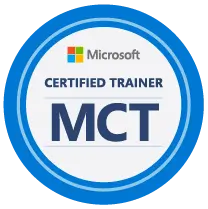
Detailed Analysis: Understanding Active Directory FSMO Roles
Active Directory (AD) is a hierarchical and distributed database that centralizes network management and security. It plays a pivotal role in network administration by storing information about network entities, such as users, computers, printers, and services. To ensure the consistency and integrity of this directory, some tasks are assigned to single domain controllers. These tasks are called Flexible Single Master Operations (FSMO), pronounced as “fiz-mo”. These roles are integral to the smooth operation of a network managed by AD. This article will guide you through the detailed analysis and understanding of Active Directory FSMO roles.
An Introduction to Active Directory FSMO Roles
Active Directory FSMO roles are specialized tasks that are tasked to individual domain controllers within an Active Directory forest. Originally, they were called ‘operations master roles’, but their name was changed to FSMO roles to emphasize their flexibility. These roles exist because certain operations should not occur simultaneously on two domain controllers. To ensure the integrity of the Active Directory database, these operations must be managed in a single place. There are five types of FSMO roles distributed across one or more domain controllers. An understanding of these roles will help you manage your network more effectively and securely.
A domain controller assigned a FSMO role retains this role until it is manually transferred or the domain controller fails. If a domain controller fails and it is assigned a FSMO role, the role must be manually moved to another domain controller. This is to ensure that the responsibilities of the failed domain controller are adequately covered. It is noteworthy to mention that while most operations in Active Directory can occur on any domain controller, there are some functions, associated with the FSMO roles, that can only be performed on a single domain controller.
Understanding the Five Types of FSMO Roles
The Active Directory FSMO roles are divided into two categories: forest-wide operations master roles and domain-wide operations master roles. The forest-wide operations master roles are the Schema Master and the Domain Naming Master. The domain-wide operations master roles are the Relative Identifier (RID) Master, the Infrastructure Master, and the Primary Domain Controller (PDC) Emulator.
The Schema Master role is responsible for performing updates to the Active Directory schema, which defines the objects and attributes within an Active Directory forest. The Domain Naming Master role is responsible for controlling the addition or removal of domains in the forest. The RID Master assigns unique identifiers to objects. The Infrastructure Master is responsible for cross-domain object references. The PDC Emulator serves a variety of critical functions including time synchronization and managing password changes.
How Active Directory FSMO Roles Influence Network Operations
Active Directory FSMO roles are key to the smooth running of an AD network. They control various operations to ensure consistency, prevent conflicts, and optimize network functioning. For instance, the RID Master ensures each object in the domain has a unique identifier. This prevents conflicts that could otherwise arise when two objects share the same identifier. The PDC Emulator plays a multiple role as it is responsible for time synchronization across the network, processing password changes for older clients, and creating group policy objects.
The Schema Master and the Domain Naming Master roles are the backbone of the entire forest. By controlling updates to the AD schema, the Schema Master ensures that all changes are accurate and consistent across all domain controllers in the forest. The Domain Naming Master prevents conflicts by controlling domain additions and deletions in the forest. The Infrastructure Master is essential for referencing objects from other domains, maintaining relationships between objects across domains.
Practical Implications and Management of FSMO Roles in Active Directory
Understanding and managing FSMO roles is critical to the proper functioning of an Active Directory environment. Mismanagement or failure of FSMO roles can lead to severe consequences, including network failures, inconsistency in data, and security vulnerabilities. Therefore, it is important to regularly monitor these roles and their assigned domain controllers.
Transferring a FSMO role to another domain controller is a straightforward process that can be performed manually when necessary. However, it is advisable to plan such transfers carefully to prevent any network issues. In the event of a domain controller failure, the relevant FSMO role should be seized and assigned to another domain controller. It is crucial to note that seizure of a FSMO role is a drastic measure and should only be performed if the current role holder is permanently offline.
In terms of practical management, it’s advisable to spread the FSMO roles across multiple domain controllers. This provides redundancy and ensures that the failure of a single domain controller doesn’t incapacitate the entire network. However, care should be taken not to overcomplicate the configuration. A balanced distribution of roles minimizes both the risk and the complexity of the setup.
The management of FSMO roles should be a key part of any Active Directory administration strategy. Proper planning, regular monitoring, and well-executed role transfers can make a significant difference in the stability and reliability of your network.
Active Directory FSMO roles are a vital aspect of network administration in an Active Directory environment. They ensure consistency, manage unique identifiers, control the addition and removal of domains, handle cross-domain references, and perform various other functions critical to network operations. Proper understanding of these roles and their practical implications are crucial for network administrators to maintain a stable and secure Active Directory environment. Regular monitoring and judicious management of these roles can significantly enhance network efficiency and resilience.


